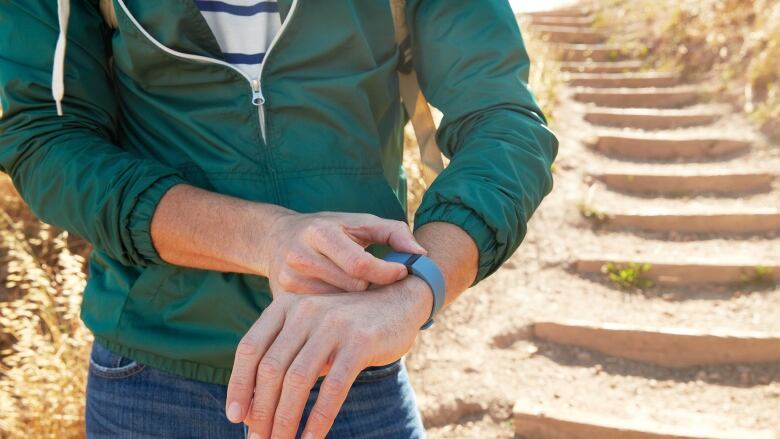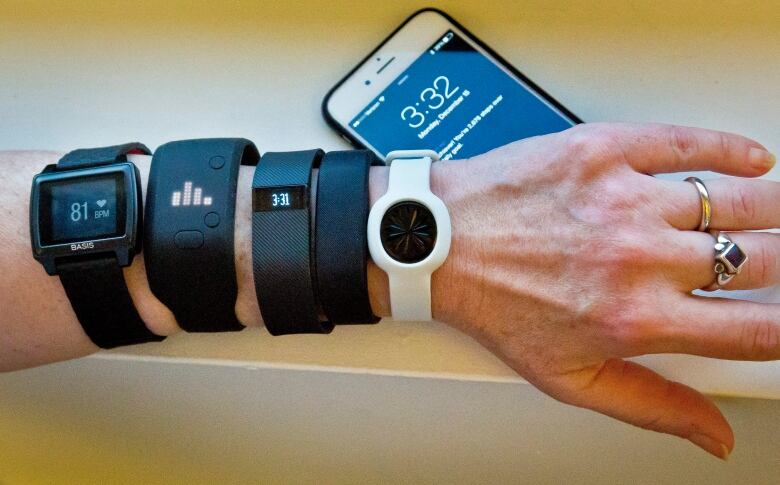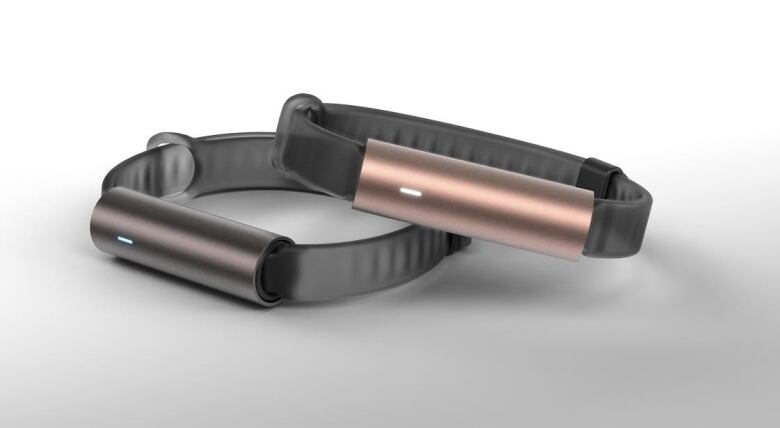Do fitness trackers really change our behaviour?
Everything we do can be recorded by our devices experts call it 'The Quantified Self'

Every January, people around the world make a vow of self-improvement: this is the year I'll get off the couch and get active! But often, by springtime if not earlier those resolutions have been long forgotten.
Now, in the digital age, there are new tools to help us stay on trackby collecting data on our behaviour.
- Thetyranny of Fitbit goals can create artificial happiness
- Fitness trackers often abandoned within months
Experts and designers have dubbed this trend"The Quantified Self."
Fitbit is one of the best-known activity trackers on the market. The wearable wristband tracks your physical activity throughout the day and lets you compare and compete with your friends.

"At first it was cool, because Iwould compete with my friends and we would set up daily challenges and monthly challenges," said Lee.
But if a device is centred around competition,what happens when your friends start to fail at their fitness goals?
"After a while, people stopped using them. One or two friends fell off. Eventually my list of competitors became something of a ghost town where I was the only one left [...]so one day I took mine off and never put it back on."
The rise of 'The Quantified Self'
The Quantified Self is a concept that's gained traction over the last few years as fitness tracking devices have become moreubiquitous.
And in 2016,the way that data is being collected andanalyzedis getting more and more advanced.
This week at CES, the Consumer Electronics Show,Vancouver-based Mio is hoping to revolutionize the wearable market, launching what they call the Personal Activity Intelligence score.

The MisFit Ray tracks your activity and your sleep, vibrating to let you know when you've been sitting too long, and checks your movements throughout the night. The wearable can even change your music or your lighting.
So now what?
"I like the idea of tracking my own data.I just don't know what to do with it," said Lee. "I like that there's a data store somewhere with all that stuff, but honestly, I've not yet figured out what to do with it."
The newest generation of wearables is trying to solve that problem by using all of our data to tell a story, which could prove to be a powerful move for self-monitoring. Human beings are uniquely motivated by a good story especially one where we're the hero. And that's just the kind of story these new data-driven devices are weaving.
The appeal of the data-driven lifestyle is that it promises us answers where there weren't any beforeand offers the comfort of a suggested path to reaching a better version of ourselves. Data feels honest, and in many ways it is.
Humans are complicated; data, at its essence, is straightforward. The promise of the quantified self is that an app, a watch or a wearable can helpus make sense of a chaotic world, one stepat a time.












_(720p).jpg)


 OFFICIAL HD MUSIC VIDEO.jpg)
.jpg)



























































































